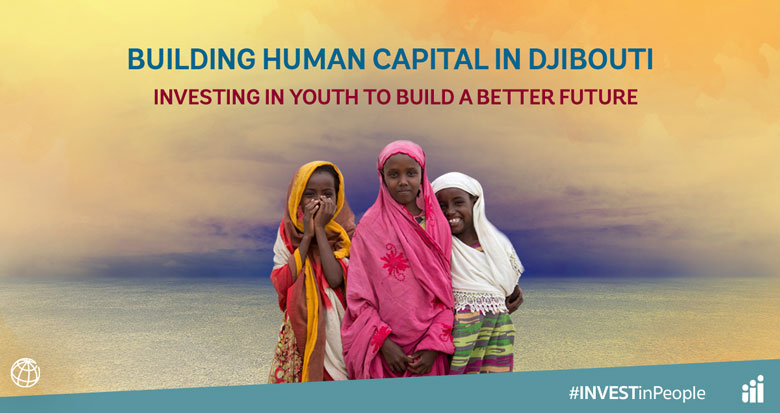Djibouti's development policies place a clear emphasis on human capital development and job creation, to ensure economic growth, achieve sustainable poverty reduction and improve the lives of all its citizens. Despite the country's efforts, particularly in the sectors of education, early childhood, health and social protection, many challenges persist, exacerbated by external shocks, such as COVID-19 and climate change. In Djibouti, only 45% of the working-age population—people aged 15 and over—participate in the labor market.
To address the challenges of human capital, a virtual conference, structured around a lifecycle approach, was organized in December 2020. Building on this first event, the forum Investing in Youth to Build a Better Future will provide an opportunity to renew the dialogue with Djibouti’s authorities and discuss an updated Human Capital Agenda, with prioritized short, medium, and long term interventions. Discussions will focus on the presentation of the World Bank’s Human Capital Project and international best practices in human development.
To meet this challenge, Djibouti must prepare its population for the world of tomorrow and unlock the potential of youth as a driver of growth.
